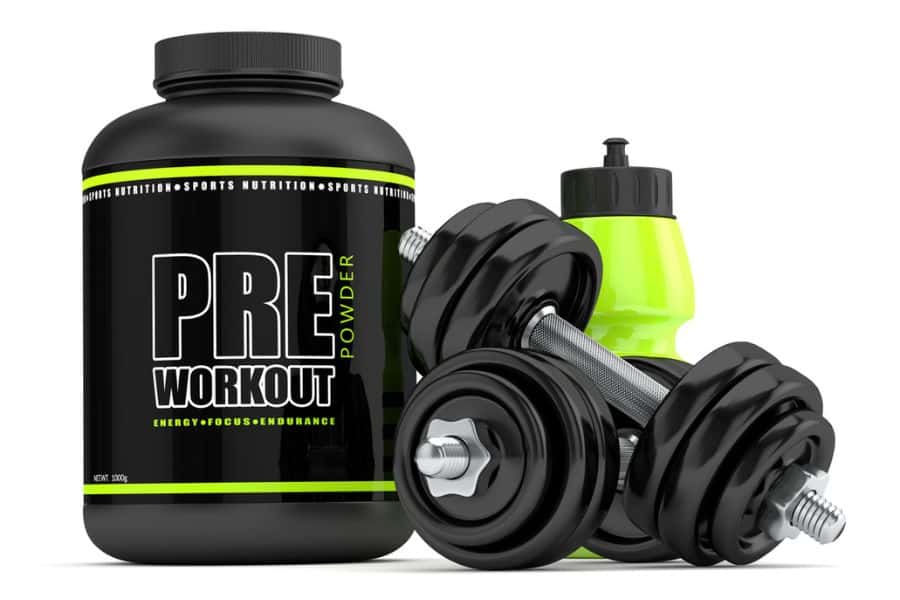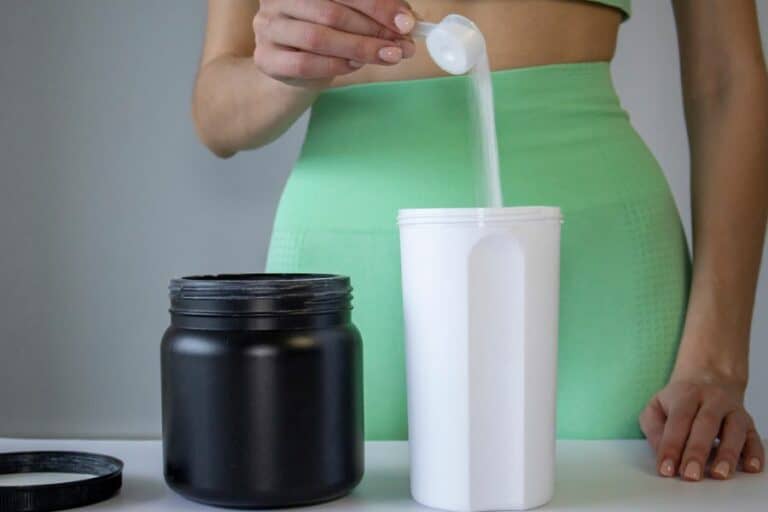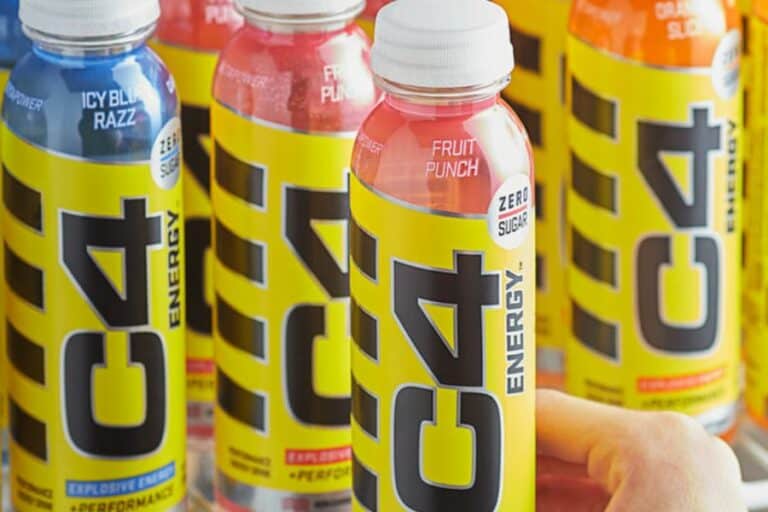Does Pre Workout Expire? The Shelf Life of Your Fitness Fuel

Does Pre-Workout Expire | Signs Of Expiry | Shelf Life | Risks | Storage Tips | fAQs
Pre-workout supplements boost energy, focus, and endurance when you need to power through intense workouts. But does pre-workout expire just like any other consumable product?
Yes, pre-workouts do expire. Understanding the shelf life of your fitness fuel is crucial to ensure its effectiveness and safety.
If you’re a fitness enthusiast who relies on pre-workout supplements, keep reading all about the expiration of your fitness fuel. Also, learn how to store, manage and utilize pre-workouts for maximum benefits.
Does pre workout expire?
Yes, pre-workout supplements can expire. Like other food and supplements, pre-workout powders have a shelf life and can lose potency over time, especially if not stored properly.
It’s generally advisable not to consume expired pre-workout. Expired pre-workout supplements may become clumpy or develop an awful taste and foul smell.
In worse cases, consuming supplements past their expiration date may lead to an upset stomach or serious infections.
It’s best to check the expiry date on the label and discard any expired products. This will ensure the maximum effectiveness of the amino acids and other ingredients in your pre-workout supplement,
Signs of expired pre-workout supplements
It is obvious that all pre-workout expires after its shelf life. However, understanding the signs of spoilage can help you determine whether your pre-workout powder has gone bad or not. Here are a few signs that can tell if your pre-workout is expired:
1. Smell and taste
When pre-workout powder expires, it may emit a foul or stale smell, indicating that the ingredients have degraded. The taste of expired pre-workout can also be unpleasant, with a sour or bitter flavor.
These changes in smell and taste can be indicative of deteriorated amino acids and other active ingredients, which may affect the potency and effectiveness of the pre-workout supplement.
It’s important to note that the smell and taste of pre-workout supplements can vary depending on the brand and specific formulation.
2. Looks clumpy
Signs of expired pre-workout supplements can also manifest changes in the appearance of the powder, with clumping being a common indicator.
Over time, moisture and air exposure can cause pre-workout powders to clump, making them difficult to dissolve properly. This may lead to an uneven distribution of ingredients, resulting in an inconsistent dosage of active ingredients. Consequently, one may not derive the intended benefits of the pre-workout supplement.
3. Changes color
Color changes can be indicative of ingredient degradation or oxidation. Ingredients, such as amino acids and other compounds, are susceptible to changes in color when exposed to light, heat, or air.
If you notice that your pre-workout powder has changed color significantly from its original appearance, such as becoming darker or developing an unusual hue, it may be a sign that it has expired and should not be consumed.
4. Develops mold
Mold growth in pre-workout powder can be visually identified as fuzzy or discolored patches on the surface of the powder.
Mold can produce harmful mycotoxins [1]World Health Organization: Mycotoxins that may pose health risks if consumed. It can also indicate that the powder has become contaminated and potentially ineffective, even dangerous.
It’s crucial to discard any pre-workout powder that shows signs of mold growth, as consuming it can lead to adverse effects such as upset stomach or allergic reactions.
5. The label shows it’s expired
The label indicating the expiration date is a clear and definitive sign that a pre-workout supplement has expired. The expiration date is provided by the manufacturer and is based on the shelf life and potency of the ingredients in the product.
If the expiration date has passed, it is advisable not to use the pre-workout supplement, as the ingredients may have degraded. Consequently, the overall effectiveness of the product may be compromised.
Read the label for the expiration dates and follow the manufacturer’s recommendations for the safe and effective use of pre-workout supplements.
6. Causes stomach distress
Consuming expired pre-workout supplements can potentially cause stomach distress and digestive issues. The degraded or spoiled ingredients in the pre-workouts can irritate gastritis (inflammation of the stomach lining) [2]National Health Service: Gastritis, leading to symptoms such as nausea, vomiting, diarrhea, or abdominal discomfort.
7. Loss of potency and effectiveness
If you notice that your pre-workout does not seem to be as effective anymore, this could also point toward an expired pre-workout.
The expired pre-workout supplement provides decreased energy, reduces focus, or lack of performance improvement potential.
Shelf life of pre-workouts based on active ingredients
The type and form of the ingredients that constitute your pre-workout have the most important impact on the shelf life of your pre-workout supplement.
Generally, most pre-workouts with stimulants like caffeine will stay fresh for up to 12 months after opening. Let’s take a detailed look at the shelf life of pre-workout supplements based on their active ingredients.
1. BCAAs
BCAAs, or branched-chain amino acids, are essential for muscle protein synthesis [3]PubMed: Branched-chain amino acids activate key enzymes in protein synthesis after physical exercise. These essential amino acids are one of the most favored ingredients in pre-workout supplements.
Most BCAAs expire roughly 2 years after their manufacturing date. The shelf lives of BCAA-based pre-workouts may vary depending on their form. Pre-workout capsules containing BCAAs can last the longest(up to 2+ years past the expiration date).
However, liquid BCAAs, such as drinks, have significantly shorter lifespans due to the moisture content and should be consumed within the manufacturer’s suggested time periods.
2. Creatine
Creatine is a popular ingredient in many pre-workout supplements. It provides explosive energy required for intense, short-duration, resistance-based activities like sprinting, weight lifting, etc. Creatine monohydrate, in particular, can last up to 3 years after its expiration date. Storage conditions may have an impact on its shelf life, though.
3. Taurine
Taurine is another common ingredient found in pre-workout supplements, known for its potential benefits in improving endurance, reducing muscle damage, and enhancing recovery. Taurine is a naturally occurring amino acid that is also found in many energy drinks.
The shelf life of taurine-based pre-workout supplements can vary depending on factors such as storage conditions and formulation. Generally, taurine has a long shelf life and can last for 2-3 years.
4. Beta-alanine
Beta-alanine, an important non-essential amino acid. This means that the body can produce it on its own. However, if you are into intense workouts consuming a pre-workout supplement with beta-alanine as the active ingredient can help to control muscle fatigue.
Beta-alanine can typically last for 2 years if stored in a cool, dry place. However, after the expiry date, the potency of beta-alanine may slowly degrade, resulting in a reduced impact on performance.
5. L-Citrulline
L-Citrulline, is another amino acid often found in pre-workout supplements. It is a good source of much-needed nitric acid and provides an extreme pump.
It can be used for upwards of 2+ years after its expiration date, but beyond that, the degradation may render it less effective. L-Citrulline is moisture-sensitive, and clumping into an unusable chunk may occur before it loses its chemical effectiveness as an amino acid.
6. Caffeine
Caffeine, a common stimulant in pre-workout supplements. Pre-workouts that contain caffeine can last for 5+ years easily if stored properly in a dried soluble powder or tablet/capsule form. However, their shelf life gets considerably reduced when they are manufactured in a liquid or partially moist form.
7. Theacrine
If caffeine-based pre-workout supplements are not your preferred choice, theacrine is a caffeine-like stimulant [4]Taylor & Francis Online: The effects of a caffeine-like supplement, TeaCrine®, on muscular strength, endurance and power performance in resistance-trained men that is sometimes used in pre-workout supplements. Theacrine is known for its ability to increase energy levels, focus, and motivation.
The shelf life of theacrine-based pre-workout supplements can vary, but they generally last for 1-2 years past the expiration date.
Risks of using expired pre-workout supplements
There are two very important implications of consuming expired pre-workout supplements. Read on to know about these:
Reduced Potency
The active ingredients in pre-workout supplements, such as BCAAs, creatine, beta-alanine, L-citrulline, caffeine, theacrine, and taurine, may lose their potency over time, leading to decreased effectiveness. This can result in a reduced workout performance and may not provide the desired benefits.
Potential Health Risks
Expired pre-workout supplements may contain degraded or spoiled ingredients, which could potentially cause adverse health effects. For example, expired liquid pre-workouts may be prone to bacterial growth, leading to the risk of contamination and causing stomach issues or other health concerns.
Tips for proper storage of pre-workout supplements
Storing your pre-workout supplements properly can help to ensure their freshness and potency over time. Here are some tips to follow:
- Don’t open the seal until you are ready to use the supplement.
- Close the lid of the pre-workout supplement tub tightly after each use.
- Do not remove the silica gel packets from the container.
- Store it in a cool, dry, and dark place.
- Avoid exposure to air and moisture.
- Shake the package or container regularly.
- Don’t keep your supplement in your gym bag for extended periods of time.
- Follow the manufacturer’s storage instructions.
Conclusion
Using expired pre-workout supplements may pose risks such as reduced potency, potential health risks, and unpleasant taste and texture.
It’s important to always check the expiration date on the product label and follow the manufacturer’s recommended shelf life and storage instructions.
If a pre-workout supplement has expired, it’s best to discard it and purchase a new one to ensure safety and effectiveness.
FAQs
Answered below are a few frequently asked questions related to the shelf life and storage of pre-workout supplements:
How do you know if pre-workout is good?
To determine if the pre-workout is good, check the expiration date on the product label, follow the manufacturer’s recommended shelf life and storage instructions, and ensure that the pre-workout has not clumped or developed an unpleasant taste or texture.
Can I still use clumpy pre-workout?
Using clumpy pre-workout may affect its effectiveness as it may not dissolve properly, leading to absorption issues. It’s recommended to avoid using clumpy pre-workout to ensure safety and effectiveness.
How to unclump your pre-workout?
If your pre-workout supplement has clumped or hardened, you can try breaking up the clumps with a spoon or a clean, dry utensil.
Alternatively, you can transfer the clumped powder to a food processor or blender and pulse it briefly to break up the clumps.
Does pre-workout go bad after mixing?
Some pre-workout supplements may instruct users to mix the powder with water or other liquids before consumption. In such cases, it’s important to follow the manufacturer’s recommendations and consume the mixed pre-workout within the specified time period, as indicated on the product label.
Pre-workout supplements that have been mixed and left standing for an extended period may degrade after some time.
References
| ↑1 | World Health Organization: Mycotoxins |
|---|---|
| ↑2 | National Health Service: Gastritis |
| ↑3 | PubMed: Branched-chain amino acids activate key enzymes in protein synthesis after physical exercise |
| ↑4 | Taylor & Francis Online: The effects of a caffeine-like supplement, TeaCrine®, on muscular strength, endurance and power performance in resistance-trained men |







